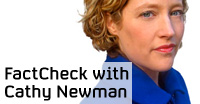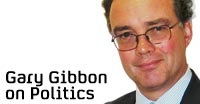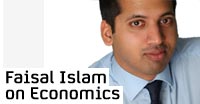Broadcast: Monday 21 April 2008 08:00 PM |
Rageh Omaar investigates how immigration has affected Britain. Using Enoch Powell's explosive 'Rivers of Blood' speech as a starting point, Rageh explores whether the apocalyptic visions of 40 years ago have any basis in today's reality.
Immigration: The Inconvenient Truth
Rivers of Blood speech in full | Listen to speech
FactCheck: speech | Enoch Powell Gallery
YouGov Survey results | Have Your Say
ONLINE DEBATE
Monday 21 April 9pm
After the third and concluding part of 'The Inconvenient Truth', the programme-makers were in the Dispatches Forum to discuss the programme with the public.
View the debate

Rageh Omaar
Award-winning journalist Rageh Omaar investigates how immigration has affected Britain in a landmark three-part current affairs series.
Part 1 Mon 7 April 2008, 8pm
Part 2 Mon 14 April 2008, 8pm
Part 3 Mon 21 April 2008, 8pm
Using Enoch Powell's explosive Rivers of Blood speech as a starting point, Rageh explores whether the apocalyptic visions of 40 years ago have any basis in today's reality.
Omaar navigates the rocky terrain of Britain's current immigration landscape, traveling around the country, talking to ordinary people and unearthing some startling and uncomfortable truths. He poses the uncomfortable questions Powell raised in his speech - questions which are often sidestepped in political debate.
The series features a specially commissioned YouGov survey that reveals what people living in Britain (including settled immigrants and new arrivals) really think about the topic of immigration and what its effects are and have been on British life.
This first programme examines the views of Britain's native white population and settled immigrants towards newcomers which include East Europeans and African migrants. Omaar discovers a sense of resentment and anger towards recent immigrants which is not restricted to the white working class. Middle-class writer Richard claims his area of Wibsey is the last bastion of British civilisation in Bradford. His description of feeling marginalised as a white minority elsewhere in the city and of being made to feel unwelcome in his own country echoes both the warnings Powell made in his speech and the feelings of Matt and Dave, a working-class father and son in Lichfield who tell Omaar it is only a matter of time before there is violence and 'Rivers of Blood' become reality.
Omaar discovers that whereas once immigration was considered a taboo subject, there is no longer such reticence about discussing it amongst the white middle-classes or the settled and second or third generation immigrants. In Brixton, South London, he meets Ricky, whose parents came over to Britain from Jamaica in the 1960s. His integration and sense of Britishness defies Powell's warnings of segregation of races but with his sense of patriotism comes criticism of the new wave of immigration. He complains to Omaar that Polish workers are undercutting his business and of encountering Eastern European immigrants who cannot speak English. Ricky's views are typical of the new immigration debate which goes beyond colour or race and is more focused on the economic repercussions.
Omaar examines the political response to the moment when Powell's vision of 'rivers of blood' appeared to come true: the summer of violence in 1981 when cities all over Britain erupted in race riots. Tensions between immigrants and natives had found expression in conflicts between young black men and the police. He visits Toxteth to hear from people involved in the riots and talks to Lord Heseltine about the political response.
Twenty five years and more on, Omaar learns that tensions between the settled population and immigrants are once again on the rise. Omaar meets recent immigrants who have been subject to racist attacks. One Somali asylum seeker who fled her war-torn country tells Omaar she fears for her life after speaking out about racist abuse in Bristol. Omaar assesses the current political response to these tensions.
Omaar concludes that the country's response to the current immigration crisis has moved well beyond Enoch Powell. Grievances and resentment against immigrants are felt and voiced by a much larger constituency. Political response has followed this broader and more widespread concern; and Britain today is finally ready to be more honest and open about immigration than it was prepared to be in Powell's day.
Share this article
From the blogs

- Yesterday at 08:07 Another cover-up at the Vatican? View RSS feed
- Yesterday at 18:00 Is there an “aggressive new atheism” in the UK? View RSS feed
- Yesterday at 12:30 Rupert Murdoch sticks the News of the World behind paywall View RSS feed
Sign up to FactCheck »
Subscribe to the FactCheck email service and receive regular updates straight to your inbox.








